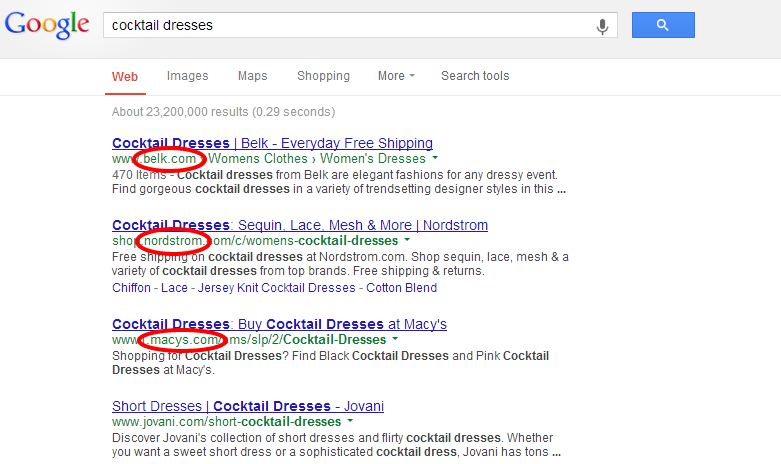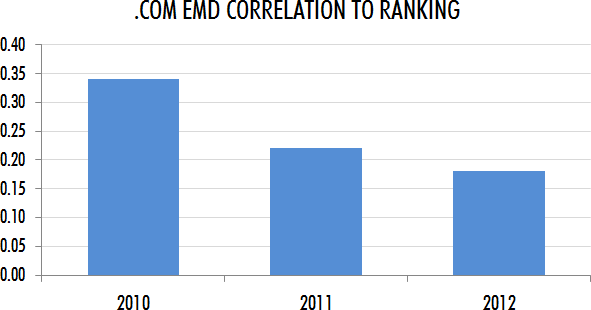“Brands are the solution, not the problem. Brands are how you sort out the cesspool.” —Eric Schmidt, CEO of Google, in AdAge.
Good branding is increasingly also good Search Engine Optimization, or SEO. The Internet was once ruled by keywords, with predictable results. Whereas a search for “cocktail dresses” might have once brought up the “exact match” domain cocktaildresses.com, now it cues up some of the biggest names in fashion: Belk, Nordstrom, and Macy’s, among others, as the below Search Engine Results Page (SERP) illustrates.

Increasingly, Brands are More Important than Keywords
I don’t know that “cocktaildresses.com” is a cesspool per se, but Google’s CEO clearly has some reason to favor brands in SERPs. So much so that the diminishing SERP ranking performance of exact match domains like cocktaildresses.com is clear, as the below table shows. (EMD = “exact match domains”)
 Table credit: http://moz.com/blog/are-exact-match-domains-in-decline
Table credit: http://moz.com/blog/are-exact-match-domains-in-decline
Why does Google favor brands?
The answer lies, it seems, not with Google but within ourselves. We the people prefer brands. We trust brands for reliable results, and respond to those brands that invest in understanding our needs and meets them with corresponding solutions. Trust is the true currency on the Web.
It is often said that a brand is a promise. Of quality, service, and an overall positive experience. If a brand breaks the promise, it has something to fear. The wrath of a slighted Internet customer is nothing to trifle with!
At the end of the day, Google and other search engines try to deliver positive Internet experiences. If they didn’t, you’d search elsewhere. Google knows quality brands are most likely to deliver that satisfaction. That’s why when it comes to SEO, it’s time to start thinking beyond just the cesspool of keywords, and get serious about building your brand.
Where to Start?
Consider a domain with your company name in it, and make sure you’ve built out robust social media profiles, including on LinkedIn. Facebook even makes a custom url pretty easy, but you’d be surprised how many business pages have a string of numbers for a url instead of their brand name, like “Facebook.com/BrainPik.” Finally, try to think of content AS your brand. You don’t need a complex, custom site to communicate your value — start doing that through multimedia, and don’t stop.

